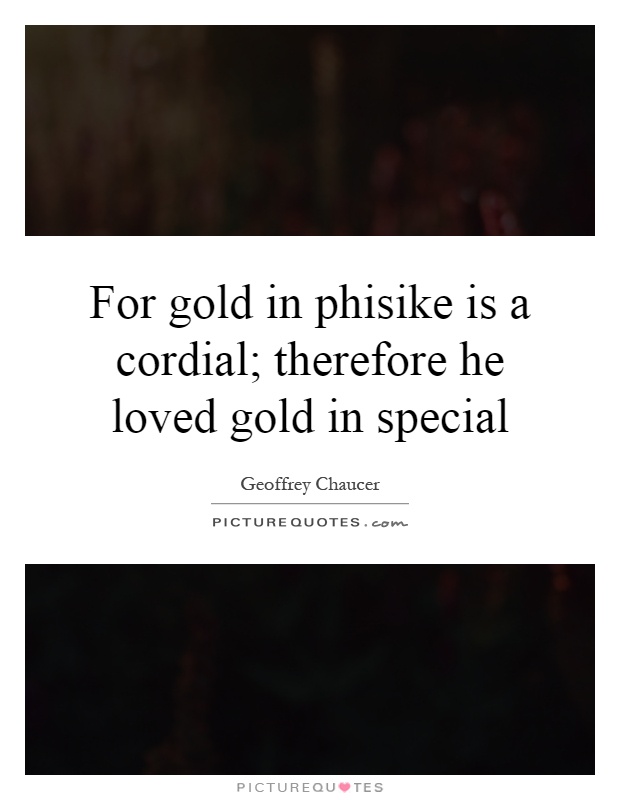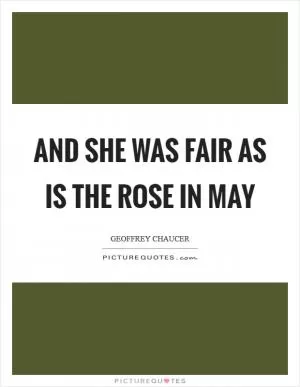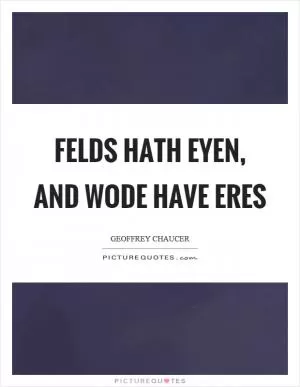For gold in phisike is a cordial; therefore he loved gold in special

For gold in phisike is a cordial; therefore he loved gold in special
Geoffrey Chaucer, known as the Father of English literature, was a poet, philosopher, and author who lived in the 14th century. His works, including The Canterbury Tales, are considered some of the greatest in English literature. Chaucer was a keen observer of human nature and society, and his writings often reflect his deep understanding of the complexities of human behavior.The quote “For gold in phisike is a cordial; therefore he loved gold in special” is from Chaucer’s work, The Canterbury Tales. In this quote, Chaucer is referring to a character who has a special love for gold because he believes it has healing properties. The character’s obsession with gold is a reflection of his materialistic nature and his belief in the power of wealth to bring happiness and well-being.
Chaucer uses this quote to explore the theme of greed and the corrupting influence of wealth. The character’s love of gold is not just a physical desire for riches, but a deeper psychological need for security and comfort. Chaucer suggests that the pursuit of wealth can lead to moral decay and a loss of integrity, as the character’s obsession with gold blinds him to the needs and suffering of others.
Chaucer’s portrayal of the character’s love of gold as a “cordial” highlights the character’s belief that wealth can provide comfort and solace in a world filled with uncertainty and suffering. The character’s desire for gold is not just about acquiring material possessions, but about seeking a sense of security and well-being in a world that is often harsh and unforgiving.
Overall, Chaucer’s quote “For gold in phisike is a cordial; therefore he loved gold in special” is a powerful reminder of the dangers of greed and the corrupting influence of wealth. Chaucer’s exploration of this theme in The Canterbury Tales continues to resonate with readers today, as we grapple with the enduring human struggle to find meaning and fulfillment in a world driven by materialism and consumerism.












 Friendship Quotes
Friendship Quotes Love Quotes
Love Quotes Life Quotes
Life Quotes Funny Quotes
Funny Quotes Motivational Quotes
Motivational Quotes Inspirational Quotes
Inspirational Quotes